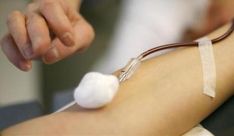Mental health care in India continues to be slogged down by lack of resources and awareness. In a bid to change this situation, the Rajya Sabha passed the Mental Health Care bill on August 8.
The amendments to the bill were introduced in 2013, when the decision to repeal the 1987 Mental Health Act was passed.
The highlight of the new bill is decriminalisation of attempt to suicide. Until this bill becomes law, suicide and attempted suicide are criminal offences, and the offender is charged under section 309 of IPC.
The MHC bill will override this law. It states that the person attempting suicide will be presumed to be 'under severe stress' unless otherwise proven, and is not punishable. The move is welcomed by mental health care professionals across the country, as it takes away the burden of implicating a mentally ill person in a crime that he or she had no sane control over.
“People with mental illness are helpless and hopeless,” says Tanya Dutt, who works with Chennai-based Aasha, which provides employment for people with mental illness. “They are not criminals, and can't be treated under criminal laws.”
The Lancet Commission on Adolescent Health and Well-being reported that suicide was the top cause of death among the youth of India, which reflected deeply on the country's mental health condition.
The MHC bill aims to take a rights-based perspective on mental health care, rather than focusing just on treatment. It ensures that mental health care is affordable and accessible without discrimination. It prohibits Electroconvulsive Therapy on minors. ECT is allowed on adults, but with anaesthesia and muscle relaxants.
Redefinition
The bill seeks to redefine mental illness, to better understand various conditions that are persistent among the population. It says mental illness is a 'substantial disorder of thinking, mood, perception, orientation or memory that grossly impairs judgement, behaviour, capacity to recognise reality or ability to meet the ordinary demands of life'. Mental conditions related to alcohol or drug abuse were also included in the definition.
Mental retardation, characterised by 'incomplete development of mind of a person,' is not included as 'mental illness'. According to Dutt, this distinction is important. “Mental illness is not an intellectual disability, unlike mental retardation,” she says. These people are intelligent, and can take up regular employment, which could motivate them to lead a productive life, she adds.
India has an abysmal level of awareness and understanding about mental health. This was reportedly evident even within the parliament, where a confusion persisted among those who spoke at the RS meeting. Some parliamentarians used 'mental illness' and 'mental retardation' interchangeably, while also confusing 'mentally ill' with 'mentally challenged'.
Shortage of professionals
The main challenge facing the mental health care sector today, besides a lack of funding, is the lack of mental health professionals, especially in government institutions. According to a UN report, India has more than 70 million people suffering from some form of mental disorder, but there are only three psychologists and lesser psychiatrists for every million patients. “There's a huge number of mentally ill people for very little people who can take care of them,” agrees Dutt.
A report published in the Lancet to mark the launch of the China-India Mental Health Alliance in May 2016 reveals shocking statistics: six states in India have absolutely no public mental care institutes. These Northern and Eastern states have a population of 56 million. The rest of India has 443 public institutes.
The new bill has provisions to introduce a Mental Health Review Commission, to set up Central and State authorities, and to increase the number of health care institutions.











